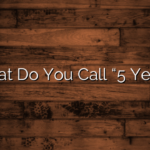In today’s society, where death is often considered a taboo topic, it may come as a surprise that there is a designated term for commemorating the anniversary of someone’s passing. According to recent surveys, approximately 90% of cultures around the world observe what is known as a ‘death anniversary’ or ‘memorial day.’
This tradition holds significant importance in various cultural and religious practices, serving as a time for remembrance and reflection on the lives of deceased loved ones. This article aims to explore the definition and significance of a death anniversary, shedding light on the diverse customs surrounding this commemoration. Additionally, it will discuss ways in which individuals can honor and remember their departed loved ones on this solemn occasion.
Furthermore, we will delve into the emotional and psychological impact that a death anniversary can have on individuals grieving their loss. Lastly, suggestions for coping with grief during this annual reminder will be provided. By examining these aspects comprehensively, readers will develop an understanding of how different societies acknowledge and cope with loss through the observance of death anniversaries.
Key Takeaways
- Death anniversaries are observed by approximately 90% of cultures worldwide.
- Customs associated with death anniversaries vary across cultures.
- Death anniversaries are a time for remembrance and reflection on the lives of deceased loved ones.
- Healing rituals and therapeutic activities can help cope with grief on a death anniversary.
Definition and Significance of a Death Anniversary
A death anniversary is a solemn occasion commemorating the date of someone’s passing, marked by rituals and remembrance activities to honor and remember the deceased.
The concept of death anniversaries has historical origins dating back centuries.
In many cultures, such as Hinduism and Buddhism, death anniversaries hold great significance as they are believed to be an opportunity to pay respects and offer prayers for the deceased’s soul. These traditions often involve ceremonies, feasts, and the lighting of candles or incense.
However, customs associated with death anniversaries can vary across different cultures. For example, in some Western cultures, it is common to visit the gravesite or hold a memorial service on the anniversary of a loved one’s death. In contrast, in Mexican culture, Day of the Dead celebrations occur annually on November 1st and 2nd as a way to honor ancestors who have passed away.
Despite variations in practices, death anniversaries serve as important reminders of our connection to those who have departed and provide an opportunity for collective remembrance.
Cultural and Religious Practices Surrounding Death Anniversaries
Cultural and religious practices surrounding the commemoration of the passing date typically involve rituals and ceremonies that symbolize remembrance and honor for individuals who have departed from this world.
Traditional rituals during death anniversaries vary across cultures, reflecting unique customs and beliefs.
In some cultures, such as Hinduism, families gather at the deceased person’s grave or a sacred site to offer prayers, light candles, and perform rituals to guide the soul on its journey.
Similarly, in Chinese culture, it is common to visit ancestral gravesites during death anniversaries to pay respects and leave offerings such as food and incense.
On the other hand, in Western societies, people often hold memorial services or gatherings where they share memories of the deceased person.
These customs aim to provide solace for grieving families while ensuring that the memory of their loved ones lives on.
Ways to Honor and Remember Loved Ones on a Death Anniversary
One meaningful way to commemorate the passing of a loved one is by engaging in rituals and activities that honor their memory and celebrate their life.
There are various ways to celebrate and remember a loved one on their death anniversary. Creating rituals specific to the individual can provide a sense of connection and remembrance.
For example, lighting candles or incense at a designated place can signify the presence of the departed soul. Some individuals may choose to visit the grave or burial site, offering flowers or prayers as a way of paying respects.
Others may gather with family and friends to share stories, photographs, or favorite meals that were enjoyed by the deceased. Additionally, creating memorial items such as personalized jewelry or artwork can serve as lasting symbols of remembrance.
These ways to honor and remember loved ones on a death anniversary help keep memories alive while providing solace for those left behind.
Emotional and Psychological Impact of a Death Anniversary
The emotional and psychological impact of commemorating the passing of a loved one’s anniversary can be profound and deeply personal.
The long-term effects of this commemoration vary from person to person, depending on their relationship with the deceased and their individual coping mechanisms.
For some individuals, the death anniversary serves as an opportunity for healing and closure, allowing them to reflect on their grief journey and acknowledge their progress in the healing process. It provides a space for expressing emotions such as sadness, anger, or even relief.
However, for others, the anniversary may reignite feelings of intense grief and trigger a range of emotions associated with loss. This annual reminder can reopen wounds that have not fully healed or serve as a reminder of unresolved issues related to the death.
Understanding these emotional complexities is essential in providing support to individuals navigating through this difficult time.
Suggestions for Coping with Grief on a Death Anniversary
A helpful approach to managing grief during the commemoration of a loved one’s passing is to engage in therapeutic activities that promote emotional expression and self-care. Healing rituals can provide individuals with a sense of closure and enable them to honor the memory of their loved ones. These rituals may include lighting candles, visiting the gravesite, or participating in religious ceremonies.
Additionally, seeking support from networks such as family, friends, or support groups can offer comfort and understanding during this difficult time. Sharing memories and emotions with others who have experienced similar loss can foster a sense of belonging and validation.
Engaging in self-care activities such as exercise, meditation, or journaling can also help individuals process their grief and maintain overall well-being. By incorporating these strategies into their lives, individuals can navigate the challenges of a death anniversary while finding solace in remembrance and healing.
Frequently Asked Questions
How long should a death anniversary be observed for?
The duration for observing a death anniversary varies among individuals. It is a personal decision influenced by cultural, religious, and emotional factors. The focus should be on coping with grief and honoring the memory of loved ones during this time.
Are death anniversaries recognized in all cultures and religions?
Cultural differences and religious customs play a significant role in recognizing death anniversaries. While some cultures and religions observe this event, others may have different practices or may not recognize it at all.
Can you still celebrate a death anniversary if you did not have a close relationship with the deceased?
Alternative ways to honor the memory of someone you didn’t have a close relationship with on their death anniversary may include: donating to a charity in their name, writing a letter expressing gratitude or attending a memorial service. The emotional impact of celebrating a death anniversary for someone you were not close to can vary depending on individual factors such as personal beliefs and cultural customs.
Is it appropriate to give gifts or flowers on a death anniversary?
Giving gifts or flowers on a death anniversary is a common way of expressing condolences and remembering loved ones. It allows individuals to honor the deceased and offer support to grieving family members.
Are there any traditional rituals or ceremonies that should be performed on a death anniversary?
Traditional customs, rituals, and ceremonies on a death anniversary vary across cultures. Some common practices include visiting the grave, offering prayers or incense, organizing memorial services, and sharing meals with family and friends to honor the deceased.
Conclusion
The death anniversary holds great significance in many cultures and religions, as it is a time to remember and honor loved ones who have passed away.
Various practices exist around the world to commemorate this day, ranging from religious ceremonies to personal rituals. These acts of remembrance can provide comfort and solace for those grieving the loss of their loved ones.
However, the emotional and psychological impact of a death anniversary should not be overlooked. It is essential for individuals to find healthy ways to cope with grief on this occasion, such as seeking support from others or engaging in self-care activities. By acknowledging and addressing these emotions, individuals can navigate through their grief journey in a more meaningful and healing way.
In conclusion, the death anniversary serves as a poignant reminder of the lasting impact our loved ones have on our lives. It is a time when we come together to honor their memory and reflect upon their presence in our lives.
The juxtaposition between grief and celebration allows us to experience a wide range of emotions while finding solace in remembering those we have lost. Through cultural practices, personal rituals, and coping strategies, we can navigate this difficult day with grace and resilience.



